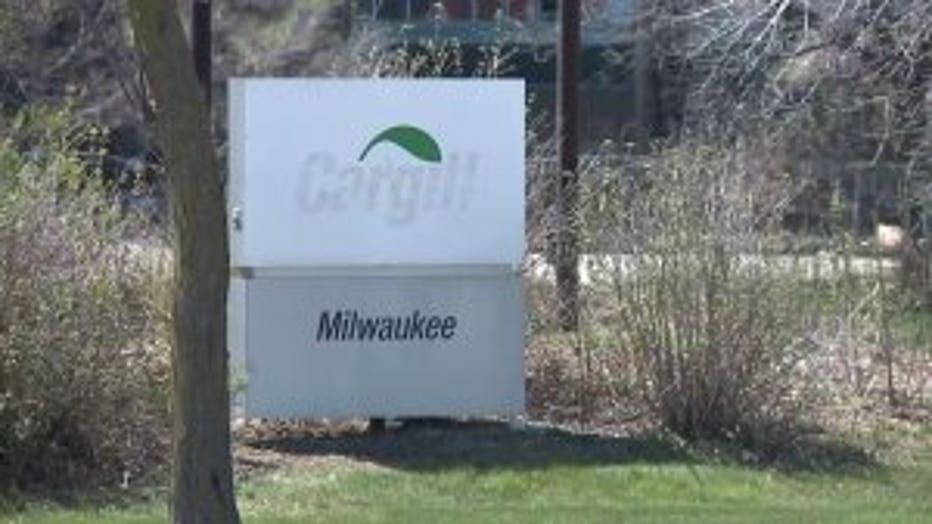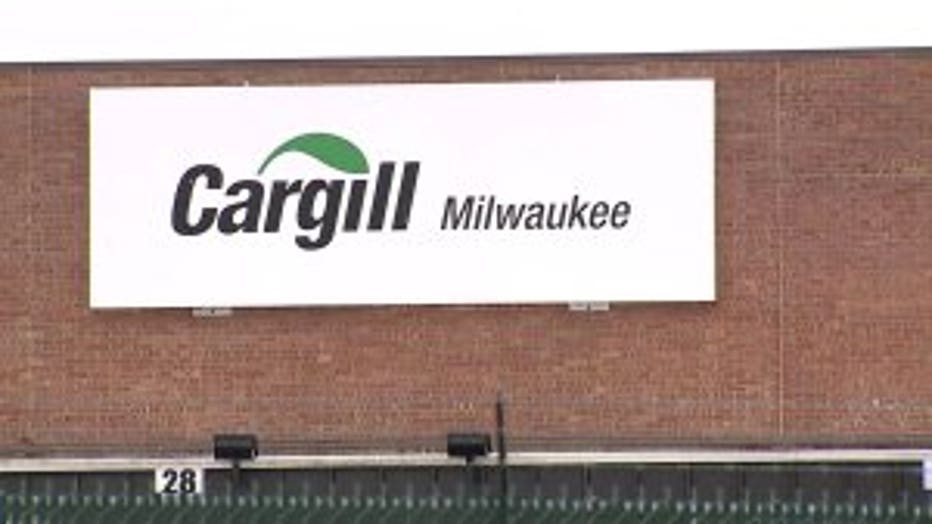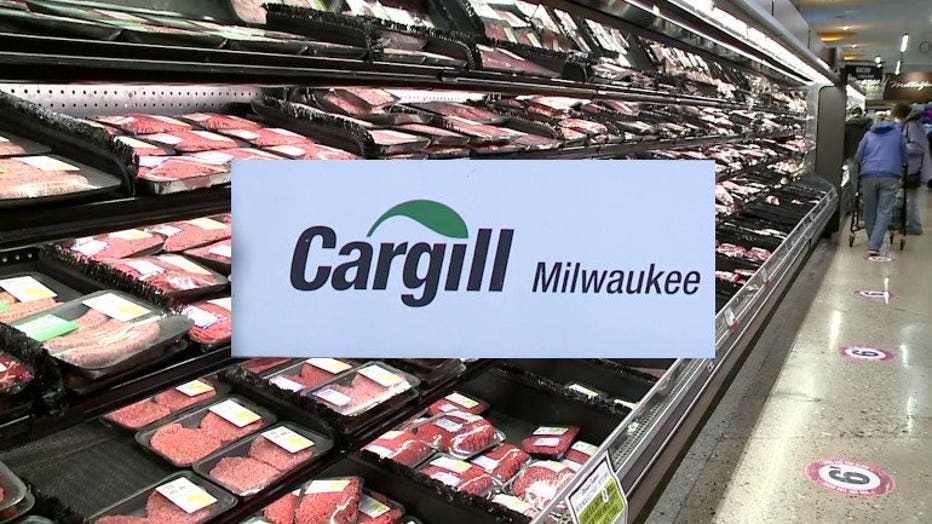Cargill closes for COVID-19 testing; Wisconsin Grocers Association warns of 'supply shortages'
MILWAUKEE -- Cargill Meat Solutions on Emmber Lane near Canal Street in Milwaukee closed temporarily beginning on Wednesday, May 6 at 1 p.m. to test employees for COVID-19. Milwaukee Mayor Tom Barrett confirmed that Wisconsin National Guard members would be offering their support, testing facility employees for the virus in the coming days. Meanwhile, yet another closure involving a meat processor could impact what customers see on grocery store shelves.

Cargill Meat Solutions
"First of all, it's good Cargill is taking these steps," said Brandon Scholz, president and CEO of the Wisconsin Grocers Association. "You want to make sure your facility is safe."
A Cargill spokeswoman issued the following statement to FOX6 News on Tuesday:
"In accordance with a City of Milwaukee Health Department directive, Cargill's Milwaukee, Wis. protein facility will temporarily idle effective May 6. We hope to resume operations as soon as possible. Employees will continue to be paid during their time off.
Cargill has encouraged any employees who are sick or have been in contact with anyone with COVID-19 in the last 14 days to stay home. While operational, we have offered up to 80 hours of additional paid leave related to COVID-19. We care deeply about our employees and their safety. They are everyday heroes on the frontlines of our food system.
While this location is idled and we adapt to operating during a pandemic, our work doesn’t stop. Cargill provides an essential service to the world—providing the ingredients, feed and food that nourishes people and animals. We are working with farmers and ranchers, our customers and our employees to supply food in this time of crisis and keep markets moving."
It was not immediately clear whether any positive cases of COVID-19 have been confirmed among Cargill employees.

Cargill Meat Solutions
"There was no playbook on how to deal with the pandemic," said Scholz "This is all new."
Cargill's announcement came amid concerns for the nation's food supply chain, after plants operated by Tyson, Smithfield and JBS were all forced to temporarily close. Industry analysts and insiders have predicted supermarket shoppers might soon be feeling the effects of hiccups in the supply chain, possibly seeing fewer options in the meat aisle, along with slightly higher prices.
"You'll find that a lot of grocers in the state are receiving less than what they have in the past, whether that be pork, or beef, or chicken, and you'll also find that demand continues to stay high from consumers," said Scholz.
It's a challenge that Scholz said can be caused by even the smallest disruption in the supply chain, and one that customers might notice based on available product on the shelves.
"From cattlemen, to processing, to slaughter, to retail," said Scholz. "I think it's fair to say to customers, there are going to be shortages."

The Wisconsin Department of Health Services' website features a page regarding COVID-19 investigations in facilities throughout the state, including workplaces. As of Wednesday, that page showed a total of 42 facility-wide public health investigations at non-health care workplaces in southeast Wisconsin.

